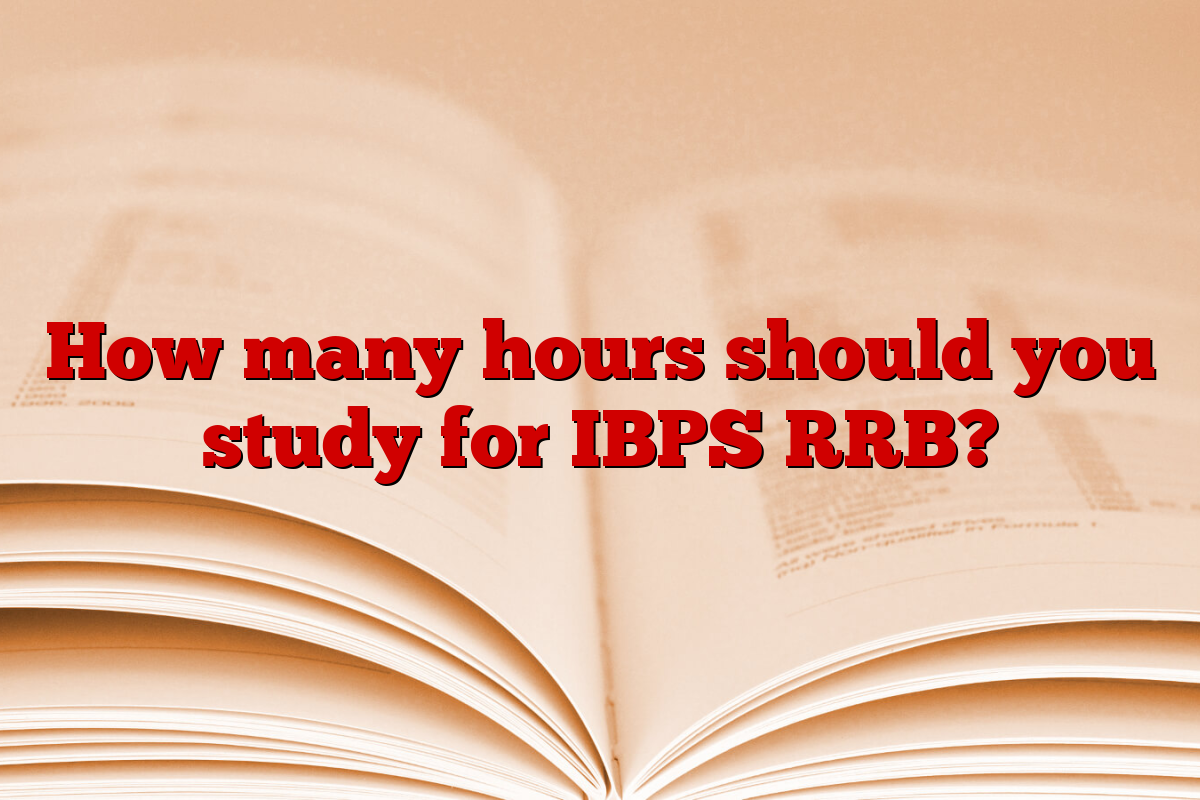IBPS Regional Rural Banks (RRB) examinations are known for their intensive competition, which attract thousands of candidates every year. One of the most frequently asked questions among the candidates is, “How many hours should I study daily for IBPS RRB?” While no fixed number is applied to all, ideal study hours largely depend on a candidate’s academic background, understanding of concepts and personal learning style. Accepting that the initial point of all is different, it is important to establish realistic expectations and study plans.
How many hours should you study for IBPS RRB?
On average, candidates are advised to dedicate at least 5 to 7 hours of study each day for effective preparation. Creating a structured timetable, practicing fake tests, and regularly modifying most of these studies can help create most of these studies. By aligning the methods of preparation with personal strength and weaknesses, candidates can ensure that they are constantly covering the entire syllabus by constantly improving their performance.
IBPS RRB exam pattern
To determine the correct amount of study time, it is first important to understand the examination pattern, course and level of competition. Preliminary Examination mainly assesses the proficiency of a candidate in logic and quantitative qualification, while classes such as computer knowledge, general awareness, financial awareness and language skills are included in either Hindi or English. Given the comprehensive IBPS RRB syllabus and intensive competition, candidates should dedicate a minimum of 5 to 6 hours focused and consistent studies each day to ensure complete preparation.
Effective time management
While the total study hours are important, effective time management is equally important. Candidates should make a well -structured study plan that includes the following
- Subject-wise allocation: Allocate the time of study based on your weight and your proficiency level for each subject.
- Practice and Amendment: Set a dedicated time to practice mock tests, previous year’s question papers and modified concepts.
- Break: Include brakes and holiday activities to avoid burnouts and maintain focus.
- resilience: Allow for flexibility in your schedule to accommodate unexpected conditions or personal commitments.
Store your study plan
Candidates can make their study plan as per the following scheme
| Study plan structure | ||
| Session | Duration | Center |
|---|---|---|
| Morning | 2-3 hours | Fresh subjects required by intensive concentration (eg, quantitative ability, logic). |
| Afternoon | 2-3 hours | Lighter theme (eg, reading understanding, general awareness, banking awareness). |
| Evening | 1-2 hours | Amendment of day studies, resolving practice questions, and taking mock tests. |
Weekly study scheme
| Weekly plan | |
| Day | activities |
|---|---|
| Monday to Friday | Intensive study sessions focus on different subjects each day. |
| Saturday | Take a full-length fake test and analyze the results. |
| sunday | Review the week’s work, focus on weak areas, and take a break to relax. |
Quantity
Study for an extended period is necessary, focusing on the quality of one’s preparation is equally important. Effective teaching involves understanding concepts, practicing techniques of solving problems and developing time management skills.
Consistency is the key
Constant efforts are the key to achieving success in IBPS RRB exams. Candidates should aim to a stable and disciplined study routine, rather than that or with intervals. Allocate dedicated study hours each day, and gradually extend the duration as an approach to examination. Consistency not only reinforces learning, but also helps in creating stamina and mental endurance, which are important to deal with long -term IBPS RRB exams.
Estimate
While the number of hours of study is important, the quality of study is even more important. Personal learning ability, depending on educational background and individual conditions, may vary from one candidate to another. However, there is no definite answer to the question of how many hours to study for IBPS RRB exams, with a combination of effective time management, quality preparation, stability and a personal approach, minimum 5-6 hours per day, can significantly increase your success prospects.
